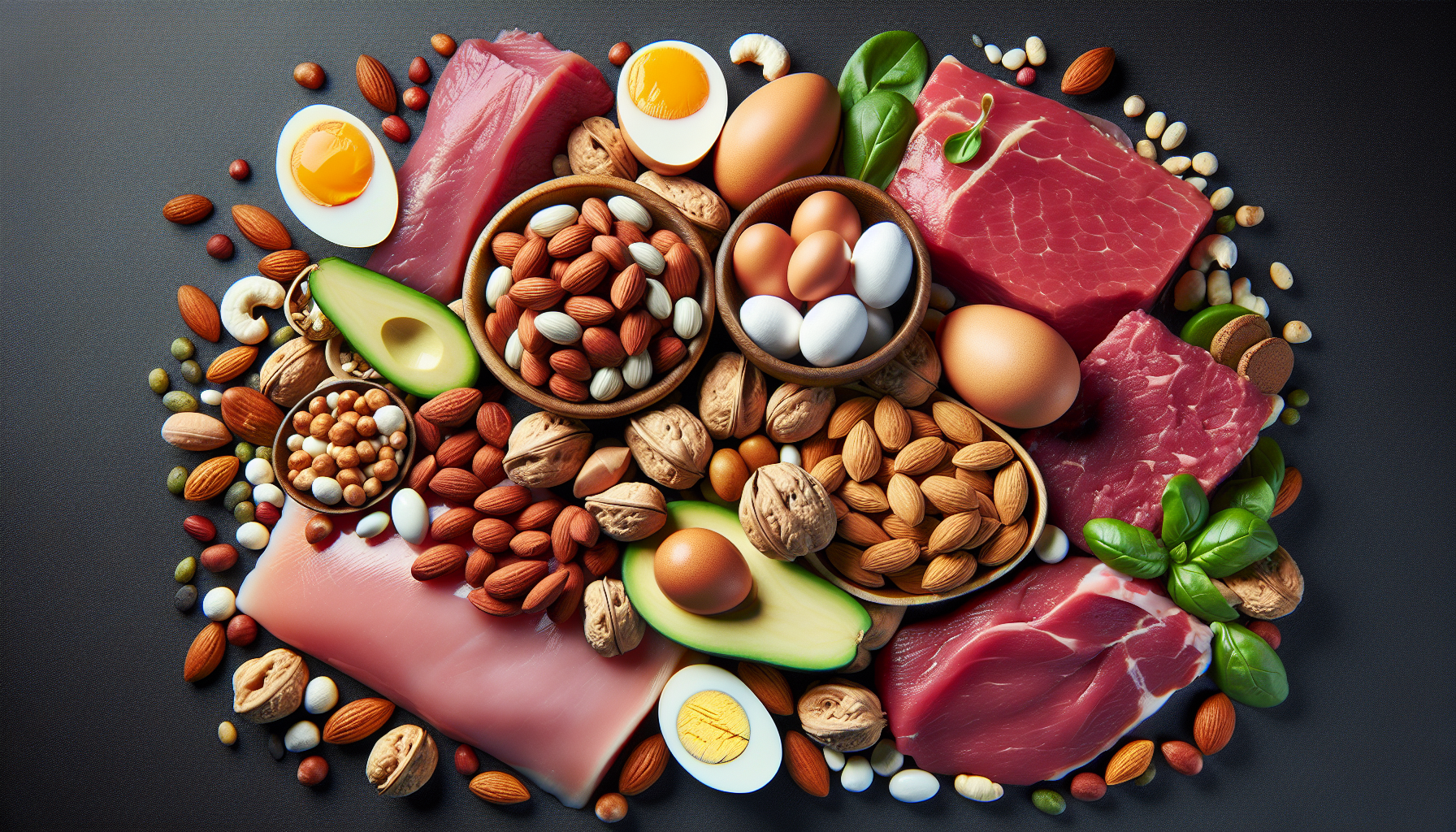Protein is a key building block of life, essential for the growth and repair of all cells, including those in our bones. While most discussions around bone health focus on calcium and vitamin D, the role of protein is equally important yet often underestimated. In this comprehensive exploration, we will delve into how protein supports bone health and why it should be a focal point in your nutritional strategy for maintaining a strong and healthy skeletal structure.
The Building Blocks of Bones
Bones are dynamic, living tissues that undergo constant remodeling throughout our lives. This process involves the breakdown of old bone and the formation of new bone, which is influenced by various nutrients, including protein. It’s important to recognize that bones are not merely rigid structures but are made up of a matrix that combines minerals with collagen, a protein that provides a framework for bone mineralization.
Protein’s role in bone health is multifaceted. It aids in the production of osteoblasts, the cells responsible for forming new bone, and osteoclasts, the cells that break down old bone. Adequate protein intake is vital for the optimal functioning of these cells and, consequently, for maintaining bone density and strength.
Protein Intake and Bone Density
Research has shown that protein intake has a positive relationship with bone mass. Higher protein diets are associated with greater bone mineral density and reduced risk of fractures, especially in older adults who are more prone to osteoporosis. However, it’s not just about quantity; the quality of protein sources also matters. Lean meats, dairy products, legumes, and nuts are excellent sources of high-quality protein that should be included in a balanced diet.
For further insight on maintaining bone health as we age, consider reading Best Practices for Bone Health Maintenance with Age, which provides valuable tips and strategies.
The Synergy Between Protein and Other Nutrients
Protein works in synergy with other nutrients to promote bone health. For example, calcium and vitamin D are crucial for bone strength, but their absorption and utilization are enhanced when paired with adequate protein intake. Therefore, a diet that combines these nutrients can be particularly beneficial for bone health.
To understand the importance of other nutrients like vitamin C in collagen formation, you may read about The Role of Vitamin C in Collagen Formation and Bone Health.
Addressing the Protein-Bone Health Myth
There has been a longstanding myth that high protein intake can lead to calcium loss and, therefore, weaken bones. This misconception stems from the belief that protein increases acid load in the body, causing calcium to be leached from bones to neutralize the acid. However, numerous studies have debunked this myth, showing that protein, especially from animal sources, has a neutral or even positive effect on bone health.
For a deeper understanding of the interplay between diet, lifestyle, and bone density, exploring The Influence of Lifestyle Choices on Bone Mass and Health can provide additional context.
Protein Needs Across the Lifespan
Protein requirements vary throughout different stages of life. Children and adolescents need ample protein for growth, while adults need it to maintain muscle mass and bone health. In older adults, higher protein intake is necessary to combat the natural decline in muscle and bone density.
Vegetarian and Vegan Considerations
Those following vegetarian or vegan diets need to be mindful of their protein sources to ensure they are meeting their needs for both quantity and quality. Plant-based proteins can be complete and beneficial for bone health when a variety of sources such as beans, lentils, tofu, and quinoa are included in the diet.
The Role of Exercise in Protein Utilization
Exercise, particularly weight-bearing and resistance training, works hand-in-hand with protein to strengthen bones. Physical activity stimulates bone formation, and when combined with adequate protein intake, it can significantly improve bone density.
For those interested in the impact of physical activity on children’s bone health, Optimizing Bone Health in Children: The Role of Physical Activity is a recommended resource.
Protein Supplementation and Bone Health
For individuals who struggle to meet their protein needs through diet alone, supplementation may be a viable option. However, it is crucial to choose high-quality protein supplements and to consult healthcare professionals before starting any supplementation program.
When considering supplements, one may also refer to Medication & Supplements for guidance on responsible use and selection.
External Resources for Further Reading
To enhance your understanding of the role of protein in bone health, here are some niche and specific resources:
- The International Osteoporosis Foundation offers deep dives into the science of bone health, including the impact of nutrition.
- The Protein for Life initiative provides insights on the importance of protein for aging populations.
- Nutrition and Metabolism Society research articles discuss the relationship between protein intake and metabolic health, which is related to bone health.
- American Society for Nutrition features studies and reviews on the role of different nutrients, including protein, in maintaining healthy bones.
Conclusion
Protein is a vital component of a bone-healthy diet. It contributes to the strength and density of bones, supports the body’s ability to repair and build bone tissue, and works in concert with other essential nutrients. Understanding the role of protein in maintaining bone health is crucial, especially as we age. By ensuring adequate, high-quality protein intake and combining it with other bone-supportive nutrients and regular exercise, we can work towards a future with stronger bones and reduced risk of fractures and osteoporosis.



